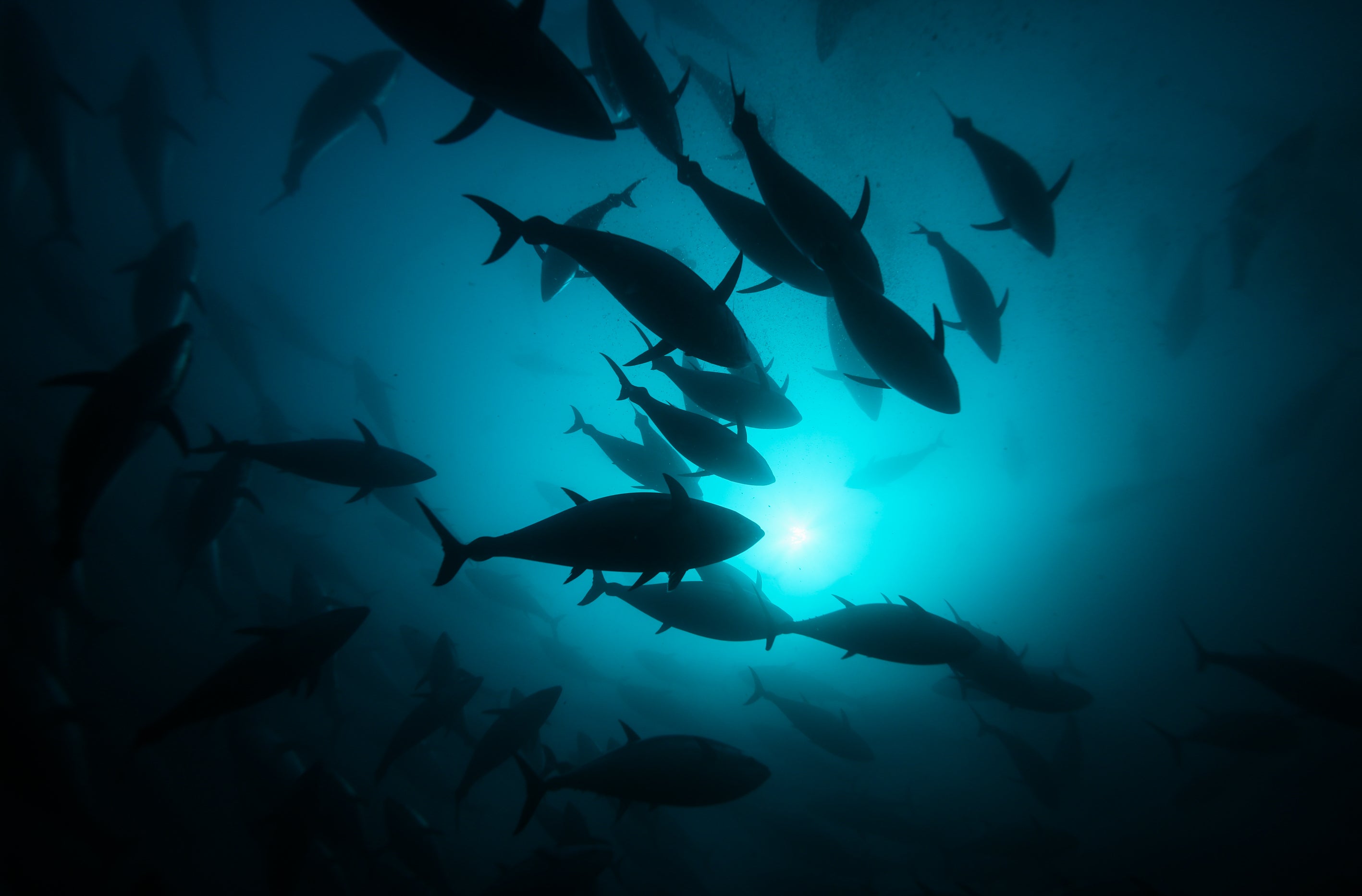Farmed seafood supply at risk if we don’t act on climate change, study finds
Levels of sustainably farmed fish could drop by 16 per cent by 2090, researchers say

The supply of farmed seafood will slump by 16 per cent over the next 70 years unless more is done to tackle the climate emergency, a study has found.
Researchers at the University of British Columbia estimated that the amount of ocean-farmed seafood could drop by as much as 90 per cent in the most affected areas - including countries such as Bangladesh, China and Norway - by the end of the century.
If action is not taken, a steep fall in availability will be caused by factors including a shortage of feed, which is typically made of fish species like herring and anchovy that are at threat from climate change.
The severity of the impact on mariculture will depend on the type of fish that is farmed, as the production of bivalves - such as mussels and oyster - will be less affected than that of fish like salmon.
Dr. Muhammed Oyinlola, an academic at the university’s Institute for the Oceans and Fisheries (IOF), warned that global heating was a large problem for the industry as a whole.
“If we continue to burn fossil fuels at our current rate, the amount of seafood such as fish or mussels able to be farmed sustainably will increase by only eight per cent by 2050, and decline by 16 per cent by 2090,” he said.
However, he and his colleagues’ modelling showed that, with lower greenhouse gas emissions, the sector’s output could expand by 17 per cent by 2050 and by 33 per cent by 2100, compared to levels in the 2000s.
The study, which is published in the Global Change Biology journal, also found that using plant-based foods like soybeans as feed instead of fishmeal and fish oil would help shore up the sector’s future.
Under a low emissions scenario where a quarter of fish food was substituted, the researchers predicted that the supply of farmed seafood would increase by 25 per cent over the next three decades.
“This study highlights the need to diversify mariculture development from the current focus on fish,” Dr William Cheung, an IOF professor who was senior author on the project, said.
“Climate change affects everything, including aspects of seafood farming we’ve not previously considered. We need to act, and quickly, to mitigate climate change rather than rely on one solution to solve all our seafood production problems,” he added.
The research comes a year after academics in France discovered that farmed fish stocks were at heightened risk of disease due to global warming.
Subscribe to Independent Premium to bookmark this article
Want to bookmark your favourite articles and stories to read or reference later? Start your Independent Premium subscription today.

Join our commenting forum
Join thought-provoking conversations, follow other Independent readers and see their replies